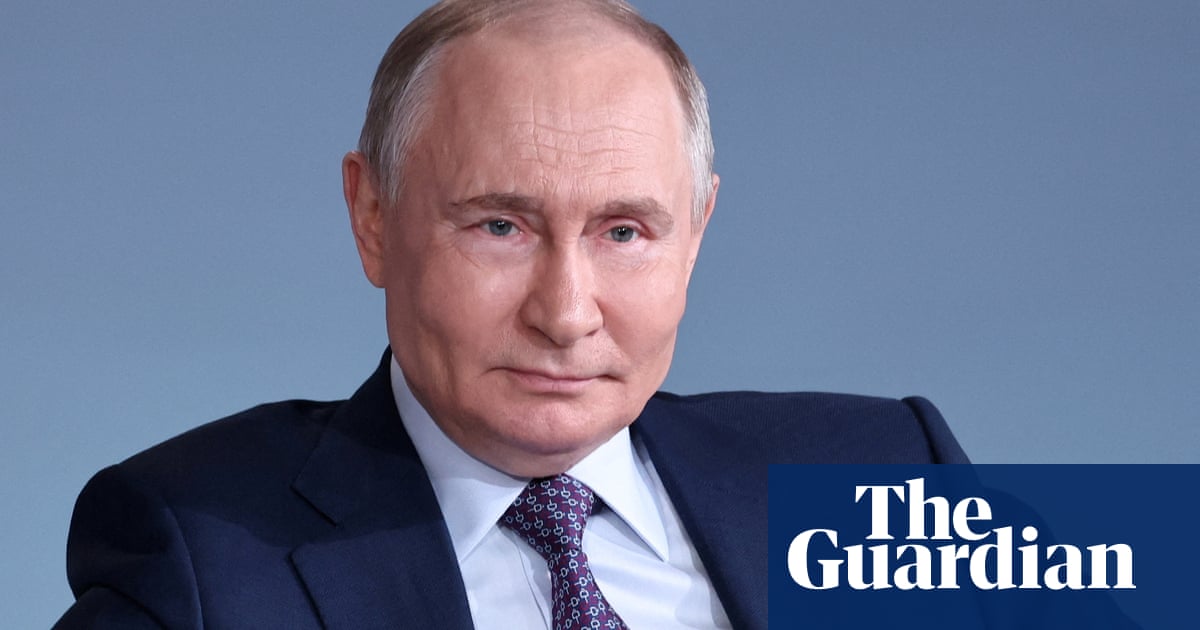The Russian president,Vladimir Putin, said in comments broadcast on Sunday said that the need to use nuclear weapons inUkrainehad not arisen, and that he hoped it would not.
Speaking in a film by Russian state television about his 25 years in power, Putin said that Russia has the strength and the means to bring the conflict inUkraineto what he called a “logical conclusion”.
Responding to a question from a state television reporter about Ukrainian strikes onRussia, Putin said: “There has been no need to use those [nuclear] weapons … and I hope they will not be required.”
Fear of nuclear escalation has been a factor in US officials’ thinking since Russia invaded Ukraine in early 2022. The former CIA director William Burns has said there was a real risk in late 2022 that Russia could use nuclear weapons against Ukraine.
In autumn 2022, the US was so concerned about the possible use of tactical nuclear weapons by Russia that it warned Putin over the consequences of using such weapons, Burns has said. At the same time, the Chinese leader Xi Jinping also warned Putin not to resort to nuclear weapons.
Putin signed a revamped version of Russia’s nuclear doctrine in November 2024, spelling out the circumstances that allow him to use Moscow’s atomic arsenal, the world’s largest. That version lowered the bar, giving him the option of using nuclear weapons in response to even a conventional attack backed by a nuclear power.
The US president,Donald Trump, has said he wants to end the conflict via diplomatic means, raising the question of whether Putin was willing to negotiate a peace settlement. But the Kremlin has rejected calls by Kyiv and Washington for an unconditional 30-day ceasefire.
Putin, in February 2022, ordered tens of thousands of Russian troops toinvade Ukraine. Moscow’s forces now control about 20% of Ukraine, including parts of the south and east.
In the carefully choreographed state television film, Putin was shown in his private Kremlin kitchen offering chocolates and a fermented Russian milk drink to the Kremlin correspondent, Pavel Zarubin.
Sign up toThis is Europe
The most pressing stories and debates for Europeans – from identity to economics to the environment
after newsletter promotion
Putin, a former KGB lieutenant colonel who was handed the presidency on the last day of 1999 by an ailing Boris Yeltsin, is the longest serving Kremlin leader since Joseph Stalin, who ruled for 29 years until his death in 1953.
Reuters and Associated Press contributed to this report
